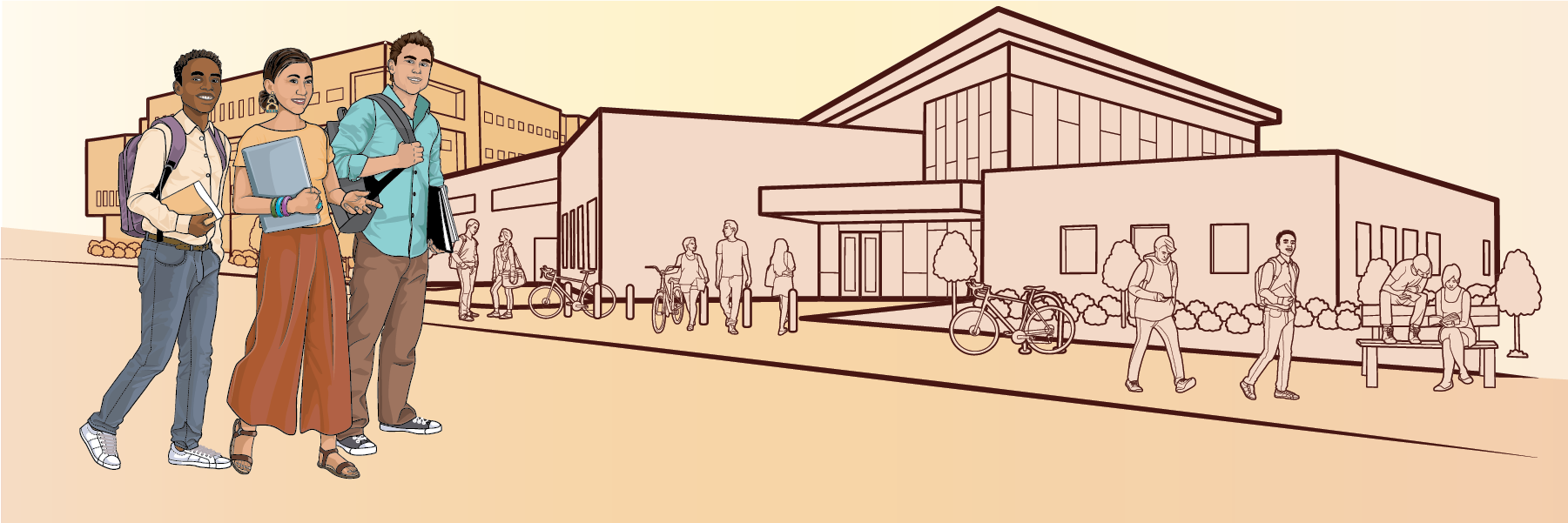Skyline College:
Redesigning Counseling Services
The Beginning
With the Skyline College Promise, College leaders explored how to create a meaningful and intentional academic and student support experience for all new students.
They took a multifaceted approach to understanding student barriers and to exploring solutions. A group of college redesign leaders examined data from Community College Survey of Student Engagement (CCSSE) surveys where many students reported never or rarely seeing a counselor, even as the majority said counseling was a valuable resource. College leaders also looked at data on when and how students access services, who accesses services, graduation rates at the college, and data on other key momentum points.
Their three main findings: Students struggle with maintaining academic momentum; students do better when they feel connected and integrated into the college; and support services have an impact when timely and relevant to students’ needs and academic goals.
Skyline set three main goals:
Work with students as they enter the college and select a meta-major, and get them connected to support that fosters success.
Develop a comprehensive approach to counseling, and serve students equitably within the meta-majors and the Guided Pathways framework.
Scale an intentional career development approach that ranges from increasing awareness of career options to supporting career and job readiness.
Implementation
In redesigning counseling and student supports, Skyline College set key milestones for students: getting into the college, getting through and completing, and developing career goals. Students are supported with general counselors and assigned meta-major counselors who connect them to activities, resources, and knowledge specific to their meta-major.
Getting in: Counseling and student support staff help students enter the college, choose a meta-major, and get connected with resources that will serve their needs. Counselors connect with students through the high school liaison program, at orientations, and at the students’ first counseling meeting. This first counseling appointment has been restructured to help guide students toward choosing a meta-major. Students review results of their MyMajor survey
and choose a meta-major, but they also may remain undecided. The counselor discusses first- and second-semester course schedules and encourages students to enroll in student success and career exploration courses when appropriate. Using results from NoviSurvey, the counselor connects students with appropriate support services. The support programs receive the names of interested students and follow up directly with them. For students who are undecided in their major, there is a structured half-day meta-major preview where they can explore the programs within specific meta-majors.Getting through: As the Skyline team examined ways to support students, they learned from the CUNY ASAP approach to proactive student supports. CUNY assesses students’ needs based on their prior academic progress, their establishment of career or transfer goals, and their personal resilience, and they are grouped accordingly.
High need: These students have struggled in academic settings, are still deciding on educational and career goals, and may face personal barriers such as family responsibilities, housing insecurity, or mental health struggles. Recommended 3 counseling meetings per semester.
Medium need: These students may have withdrawn or struggled in classes in the past or with attendance and perseverance. They may have some sense of their educational goals but still struggle with the self-awareness needed to set clear goals. Medium-need students also struggle with some personal issues but communicate about them more than “high-need” students. Recommended 2 counseling meetings per semester.
Low need: These students are engaged and focused, have succeeded in an academic setting, and have clear academic goals. Low-need students understand the educational pathway they are on and approach it with self-awareness. They are organized, positive, and able to assess their own needs. Recommended 1 counseling meeting per semester.
Student Experience
Students benefit from a customized approach to supports.
Programs and resources proactively reach out to students rather than waiting for students to come to them.
Students have a point of contact at the college who can help them access resources and better understand how
resources can help them meet their goals.Career development is a part of every student’s experience.




